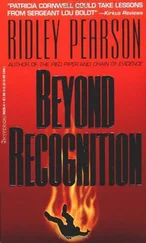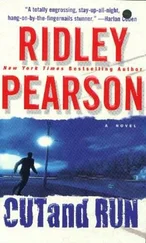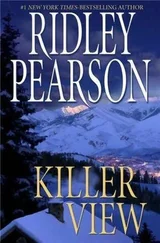

For Kathi
ACKNOWLEDGMENTS
Thanks to the U.S. Department of State for sponsoring a speaking trip to Germany that allowed for research in Amsterdam. To Jen Wood and Nancy Zastrow for their help in the office. To David and Laurel Walters for the repeated copyedits. To Dr. Genevieve Gagne-Hawes for her brilliance. My editor, Christine Pepe. Agents Amy Berkower, Dan Conaway, and film agent Matthew Snyder.
And to Marcelle, Storey, Paige, Louise, Betsy, and Brad for keeping the family close.

The air is visible. It smells of camel dung and human sweat. It tastes worse. It comes in hot waves, stealing any appetite he might have had and stinging his eyes. Flies buzz past his ears and light on his face. He waves them away, his right hand a horsetail of constant motion.
The sun-soaked skin of the man who sits cross-legged before him looks shrink-wrapped over long, thin bone. Unflinching rheumy eyes stare back at him beneath wild white eyebrows. John Knox studies the man’s long flat-nailed fingers as they punch out numbers on a battery-operated calculator that serves as their translator—money, the only language spoken here.
The chess sets before him are things of beauty. Knox is offered such sets everywhere he trades; he’s tired of them. But these are hand-carved inlaid stone boards and intricately carved jade pieces—fine jade, not the cheap stuff. What they’re doing in Kairouan, Tunisia, is anybody’s guess. Knox used to try to think through such anomalies. No longer. He doesn’t care where they came from or who made them, just craftsmanship and price. Weight, sometimes, because shipping has gotten so expensive. Profit is not in quantity but quality. He needs to reach a price that will allow him to sell them for ten times cost. His mind grinds through figures—taxes, shipping, breakage, shrinkage. The merchant taps the calculator, signaling a new asking price. Knox blows away a fly and reads the number upside down.
It could have been a gust of wind, the touch is so light. A moth-eaten cat that appears by his leg offers another possibility. The poor thing looks like it was put in with the laundry and hung out to dry. But accompanying that touch came a sour odor. Not cat urine; something distinctly human. Trailing faintly behind, a pleasant, almost intoxicating, sweet warmth of milk chocolate.
It’s the chocolate that causes Knox to react reflexively. Turning as he does. He misses the boy’s left ankle but feels hairs brush the tips of his fingers.
Up and off the rug and into the melee of the market, the grit of sand against stone under his Tevas as he dodges the colorful robes and linen wraps that move about randomly, unintentionally blocking him.
The kid got his wallet belt. Sliced the nylon webbing with what had to be a razor—Knox takes note of that—and was gone. Just like that. Ten, maybe eleven years old, and with the uncanny touch of someone who’d done this for many years. And fast? The kid is Usain Bolt in miniature. Knox’s one advantage is height—able to leap tall buildings. He keeps his eye on this kid despite the kid pulling away from him.
They turn left down a narrow lane passing wooden birdcages stacked high, noisy colors darting around inside. A stall of stringed peppers like an astringent in the air. Silver bangles chiming in clumps on pegs while seashell necklaces clatter in the same breeze. The kid with blurred legs like the Road Runner.
The cash would be a loss. This is a buying day, the last of four days in the market, the first three devoted to research. A fat wad of bills he can’t afford to lose just now at a time when every shekel counts. But the passport is the most important. He’d rather avoid the U.S. Consulate if given a choice. Has no desire to spend another several days here awaiting the reissue. He’s heard a rumor of Queensland Boulder Opals arriving into Marrakesh by the weekend. Never mind that he must travel to Morocco to buy Australian gems—it’s a global economy.
The kid turns right: a mistake. Knox has him, unless he proves to be a good climber. That lane is a rare dead end, terminating at a tobacco café serving the best coffee in the city—which is saying something here. Knox increases his stride, coughs up some phlegm and spits—enjoying the aerobic hit.
He reaches for his waist pack that isn’t there. Shit. The kid has his knife. He slows infinitesimally; it doesn’t affect his speed, but it places his feet under him more substantially. If the kid is a pickpocket, fine. But there’s a larger possibility he is only to serve as bait to lead Knox into a real mugging and full robbery—jewelry, shoes, even teeth if they have gold fillings.
Two guys he can handle. If it’s more than that, he’s in trouble.
Doesn’t see the kid anywhere. Gone, like a special effect. Laundry hangs out to dry. Some fish suspended by the tail alongside the underwear. And his waist belt on a café table in front of an empty chair.
Knox skids to a stop, dust catching up with him from behind.
David Dulwich’s shoulders pull at the seams of the gray XXL T-shirt reading OHIO STATE ATHLETIC DEPARTMENT in cracked, silk-screened letters. His scarred hand engulfs the demitasse to where it looks like he’s drinking steaming coffee out of a white thimble. A torn-open Hershey’s bar rests by the ashtray.
“Really?” Knox says, working hard not to appear out of breath.
“Sit down,” David Dulwich replies, kicking back the empty chair.

The rush of the hotel room’s forced air is all she hears. Or maybe it’s blood rushing past her ears, chased by adrenaline. Hours earlier, it was a coxswain’s rhythmic chants rising from the Charles, but the boats are long in their racks.
Her nakedness is a liability; she isn’t herself. But it’s the only price she has paid thus far to reach the endgame. The kissing and touching she found distasteful, but it never went further than that. Her decision, she reminds herself. She owns this op.
She crosses to the bathroom on tiptoes, having always found the idea of hotel carpets disgusting. She imagines colonies of bacteria engaged in an orgy, a single-celled frat party feeding on ground-in beer, vodka and cocaine.
The needle goes first with a simple snap. It splashes into the toilet and the sound startles her. She wraps a facecloth around the rest of the syringe, places it carefully onto the tile and stomps her heel, crushing the plastic to pieces that quickly follow into the open bowl. She flushes everything down, waits to make sure it’s all gone. Gooseflesh ripples up her arms and neck as she catches herself in the mirror. Grace Chu, former forensic accountant.
She flushes the toilet a second time for good measure.
She stands there seeing all the imperfections in her naked form. Always the same. At first a flash of “isn’t she pretty?” followed by disappointment: she sees her lean, attractive figure as marred by sallow skin and etched by an abundance of black body hair—the curse of every Chinese woman. She invents sad eyes and small teeth. A short neck. Never mind that men call her “alluring,” “intoxicating,” “beautifully proportioned.” Men see breasts and legs, a waist and bottom. And little else. Losing the staring contest, she terminates it.
Читать дальше
















